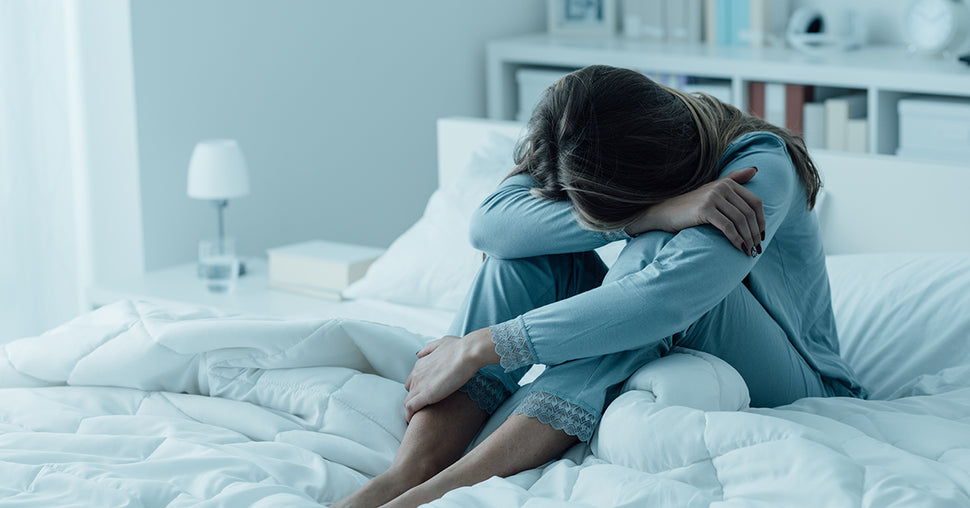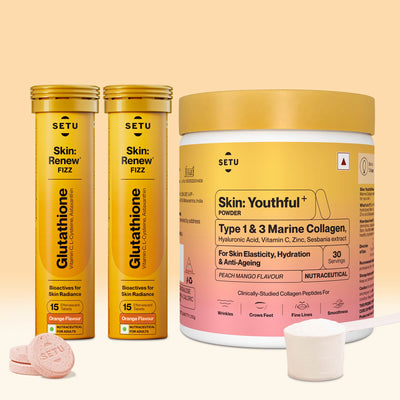Sleep - The Mother Of Immunity
12 Jun 2020
When you spend your night tossing, turning, and struggling to sleep, you already know how you’re going to feel the next day – cranky, tired, and out of sorts. On the other hand, a solid night slumber results in you being energetic, sharp, mentally agile, and ready to conquer the world. These drastic changes in our behavior, based on the quality and quantity of our sleep, indicate that there’s a more profound connection between our health and our sleep cycle, particularly between sleep and immunity. You may have read that sleep brings the period of regrouping, repairing, and rejuvenation that’s needed to maintain a healthy life. But what you may not know is how lack of sleep can adversely impact your health.
Sleep deprivation is a problem that is very commonly seen in people these days. Due to hectic lifestyles, millions of people across the globe are struggling to get sound sleep at night. While it can be managed if it occurs once in a while, chronic sleep deprivation can have some serious, long-term consequences. It holds the potential of draining your mental performance and can put your physical health at risk. One of the biggest risks comes from the link between sleep and immune system function.
Sleep and Immunity: What’s The Connection?
When we are asleep, our immune system produces antibodies and cytokines that are used to combat foreign invaders such as bacteria and viruses. The body also distributes T cells (cells that destroy other infected cells that pose a threat to the body) to the lymph nodes. With insufficient sleep, our body is unable to produce these essential fighting agents which results in a weakened immune system, leaving us susceptible to various diseases and many other health problems . This is why good sleep and immunity go hand in hand.
Apart from the inability to produce and transport T cells and cytokines, lack of sleep can also lower the white blood cell count, which is another indication of a poorly functioning immune system .

Lifestyle Conditions Associated With Sleep Deprivation
The link between sleep deprivation and chronic diseases has grown scientifically and several studies have shown the long-term effects of lack of sleep. It has been linked to many chronic diseases including, type 2 diabetes, cardiovascular disease, obesity, and depression. However, most people don’t realize that the connection between sleep and immune system function is also at play here. Due to the relationship between sleep and immunity, inadequate sleep triggers systemic or chronic inflammation, which is otherwise a healthy immune response. When it is chronic, however, it increases the risk of these lifestyle diseases.
- Diabetes: Several studies show the link between lack of sleep and the development of type 2 diabetes. This happens as sleep influences the way the body processes glucose. Such studies also suggest that improving sleep quality can enhance blood sugar control in people with type 2 diabetes .
- Cardiovascular Diseases: People with sleep disorders are more likely to experience coronary heart disease, stroke and hypertension, according to studies. People with sleep apnea (a type of sleeping disorder) are at an increased risk of developing cardiovascular diseases .
- Obesity: People who are unable to sleep for long hours often experience metabolic changes that could lead to obesity. This happens because our body secretes hormones while we sleep to regulate our appetite, metabolism, and glucose processing. Lack of sleep can disrupt the secretion of these hormones and increases midnight cravings .
- Depression: The relation between sleep deprivation and depression is very commonly known. Researches have shown that people who sleep for less than five hours often suffer from stress, anger issues, mental exhaustion, and self-doubt, which later leads to depression .
Tuck Into Immunity Enhancing Sleep
Now that we’ve established the fact that sound sleep is extremely important to preserve the body’s defenses, here are a few takeaway tips for you to get good night sleep .
- Stick to a particular sleep schedule (even on weekends). It helps fix your biological clock.
- Be smart about napping. Avoid long naps, especially in the afternoon, as it can keep you up late.
- Expose yourself to the morning sunlight.
- Leave your stress behind. Worrying about your problems at night won’t help, practice mindfulness instead. Shortly before bedtime, try calming and relaxing your mind. Relaxing strategies like deep breathing, meditation, and yoga can help you get better sleep at night.
- Avoid screens (mobile phones, laptops, televisions) 1-2 hours before your bedtime.
- Keep the room lights as dim as possible.
- Limit your caffeine intake.
- Avoid big meals at night.
- Make sure your bed is comfortable.
- Keep the room temperature moderate. A room too hot or too cold can disrupt your sleep.
- Exercising during the day will keep your body healthy and will help you sleep better at night.
You can even opt for melatonin supplements to help you improve your sleep and immunity. Melatonin, also known as the ‘sleep hormone’, is released by the body after dusk and is meant to help you relax and get into sleep mode. However, exposure to blue light from digital devices such as laptops, TV screens, and phones can reduce melatonin production and disrupt your sleep cycle. Furthermore, today’s modern lifestyle and stress also cause a drop in melatonin production making it harder for you to fall asleep.
Setu offers melatonin in the form of unique, mint-flavored orally dissolving strips that are formulated using the patented ThinOral technology. Setu Melatonin strips enable quick and efficient melatonin delivery giving you a much-needed nudge to fall asleep. Additionally, they are non-habit-forming making them safe for consumption.
Skin: Renew - Glutathione - Orange Flavour
- ₹1,944
- ₹1,944
-
₹2,800 -
You Save:
₹856 (30%)
Categories
- Choosing a selection results in a full page refresh.
- Press the space key then arrow keys to make a selection.
this is the sidecart











